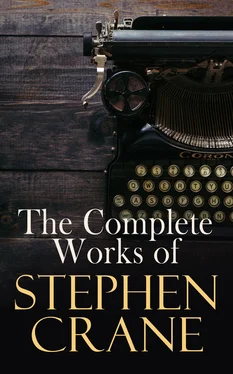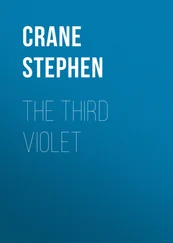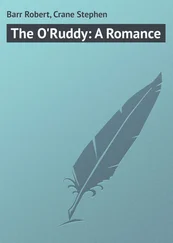He sat all day delivering orations, in the depths of a cushioned chair. His pocketbook deprived them of the power to retort.
"What een hell do you sink I pie fife dolla a week for? Play? No, py damn!" Maggie was anxious for a friend to whom she could talk about Pete. She would have liked to discuss his admirable mannerisms with a reliable mutual friend. At home, she found her mother often drunk and always raving. It seems that the world had treated this woman very badly, and she took a deep revenge upon such portions of it as came within her reach. She broke furniture as if she were at last getting her rights. She swelled with virtuous indignation as she carried the lighter articles of household use, one by one under the shadows of the three gilt balls, where Hebrews chained them with chains of interest.
Jimmie came when he was obliged to by circumstances over which he had no control. His well-trained legs brought him staggering home and put him to bed some nights when he would rather have gone elsewhere.
Swaggering Pete loomed like a golden sun to Maggie. He took her to a dime museum where rows of meek freaks astonished her. She contemplated their deformities with awe and thought them a sort of chosen tribe.
"What een hell do you sink I pie fife dolla a week for? Play? No, py damn!" Maggie was anxious for a friend to whom she could talk about Pete. She would have liked to discuss his admirable mannerisms with a reliable mutual friend. At home, she found her mother often drunk and always raving. It seems that the world had treated this woman very badly, and she took a deep revenge upon such portions of it as came within her reach. She broke furniture as if she were at last getting her rights. She swelled with virtuous indignation as she carried the lighter articles of household use, one by one under the shadows of the three gilt balls, where Hebrews chained them with chains of interest.
Jimmie came when he was obliged to by circumstances over which he had no control. His well-trained legs brought him staggering home and put him to bed some nights when he would rather have gone elsewhere.
Swaggering Pete loomed like a golden sun to Maggie. He took her to a dime museum where rows of meek freaks astonished her. She contemplated their deformities with awe and thought them a sort of chosen tribe.
Pete, raking his brains for amusement, discovered the Central Park Menagerie and the Museum of Arts. Sunday afternoons would sometimes find them at these places. Pete did not appear to be particularly interested in what he saw. He stood around looking heavy, while Maggie giggled in glee.
Once at the Menagerie he went into a trance of admiration before the spectacle of a very small monkey threatening to thrash a cageful because one of them had pulled his tail and he had not wheeled about quickly enough to discover who did it. Ever after Pete knew that monkey by sight and winked at him, trying to induce hime to fight with other and larger monkeys. At the Museum, Maggie said, "Dis is outa sight."
"Oh hell," said Pete, "wait 'till next summer an' I'll take yehs to a picnic."
While the girl wandered in the vaulted rooms, Pete occupied himself in returning stony stare for stony stare, the appalling scrutiny of the watch-dogs of the treasures. Occasionally he would remark in loud tones: "Dat jay has got glass eyes," and sentences of the sort.
When he tired of this amusement he would go to the mummies and moralize over them.
Usually he submitted with silent dignity to all which he had to go through, but, at times, he was goaded into comment.
"What deh hell," he demanded once. "Look at all dese little jugs! Hundred jugs in a row! Ten rows in a case an' 'bout a t'ousand cases! What deh blazes use is dem?"
Evenings during the week he took her to see plays in which the brain-clutching heroine was rescued from the palatial home of her guardian, who is cruelly after her bonds, by the hero with the beautiful sentiments. The latter spent most of his time out at soak in pale-green snow storms, busy with a nickel-plated revolver, rescuing aged strangers from villains.
Maggie lost herself in sympathy with the wanderers swooning in snow storms beneath happy-hued church windows. And a choir within singing "Joy to the World." To Maggie and the rest of the audience this was transcendental realism. Joy always within, and they, like the actor, inevitably without. Viewing it, they hugged themselves in ecstatic pity of their imagined or real condition.
The girl thought the arrogance and granite-heartedness of the magnate of the play was very accurately drawn. She echoed the maledictions that the occupants of the gallery showered on this individual when his lines compelled him to expose his extreme selfishness.
Shady persons in the audience revolted from the pictured villainy of the drama. With untiring zeal they hissed vice and applauded virtue. Unmistakably bad men evinced an apparently sincere admiration for virtue.
The loud gallery was overwhelmingly with the unfortunate and the oppressed. They encouraged the struggling hero with cries, and jeered the villain, hooting and calling attention to his whiskers. When anybody died in the pale-green snow storms, the gallery mourned. They sought out the painted misery and hugged it as akin.
In the hero's erratic march from poverty in the first act, to wealth and triumph in the final one, in which he forgives all the enemies that he has left, he was assisted by the gallery, which applauded his generous and noble sentiments and confounded the speeches of his opponents by making irrelevant but very sharp remarks. Those actors who were cursed with villainy parts were confronted at every turn by the gallery. If one of them rendered lines containing the most subtile distinctions between right and wrong, the gallery was immediately aware if the actor meant wickedness, and denounced him accordingly.
The last act was a triumph for the hero, poor and of the masses, the representative of the audience, over the villain and the rich man, his pockets stuffed with bonds, his heart packed with tyrannical purposes, imperturbable amid suffering.
Maggie always departed with raised spirits from the showing places of the melodrama. She rejoiced at the way in which the poor and virtuous eventually surmounted the wealthy and wicked. The theatre made her think. She wondered if the culture and refinement she had seen imitated, perhaps grotesquely, by the heroine on the stage, could be acquired by a girl who lived in a tenement house and worked in a shirt factory.
Table of Contents
A group of urchins were intent upon the side door of a saloon. Expectancy gleamed from their eyes. They were twisting their fingers in excitement.
"Here she comes," yelled one of them suddenly.
The group of urchins burst instantly asunder and its individual fragments were spread in a wide, respectable half circle about the point of interest. The saloon door opened with a crash, and the figure of a woman appeared upon the threshold. Her grey hair fell in knotted masses about her shoulders. Her face was crimsoned and wet with perspiration. Her eyes had a rolling glare.
"Not a damn cent more of me money will yehs ever get, not a damn cent. I spent me money here fer t'ree years an' now yehs tells me yeh'll sell me no more stuff! T'hell wid yeh, Johnnie Murckre! 'Disturbance'? Disturbance be damned! T'hell wid yeh, Johnnie—"
The door received a kick of exasperation from within and the woman lurched heavily out on the sidewalk.
The gamins in the half-circle became violently agitated. They began to dance about and hoot and yell and jeer. Wide dirty grins spread over each face.
The woman made a furious dash at a particularly outrageous cluster of little boys. They laughed delightedly and scampered off a short distance, calling out over their shoulders to her. She stood tottering on the curb-stone and thundered at them.
Читать дальше












